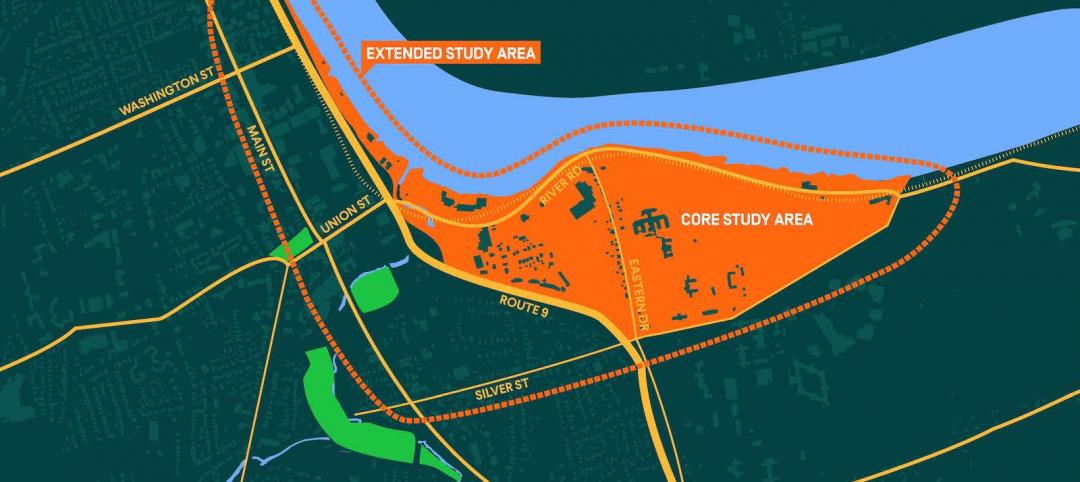Washington, D.C. - March 24, 2010 - Following a drop of nearly three points, the Architecture Billings Index (ABI) nudged up almost two points in February. As a leading economic indicator of construction activity, the ABI reflects the approximate nine to twelve month lag time between architecture billings and construction spending. The American Institute of Architects (AIA) reported the February ABI rating was 44.8, up from a reading of 42.5 in January. This score indicates a continued decline in demand for design services (any score above 50 indicates an increase in billings). The new projects inquiry score was 52.0.
"We continue to hear that funding dedicated for construction projects in the stimulus package has not yet been awarded, resulting in a bottleneck of potential projects that could help jumpstart the economy," said AIA Chief Economist Kermit Baker, PhD, Hon. AIA. "That, coupled with a persistently rigid credit market for private sector projects, is a key reason why the design and construction industry continue to suffer at near historic levels in terms of job losses."
Key February ABI highlights:
Regional averages: Midwest (49.4), Northeast (44.1), West (43.6), South (40.7)
Sector index breakdown: multi-family residential (47.3), institutional (44.2), mixed practice (43.3), commercial / industrial (43.2)
Project inquiries index: 52.0
About the AIA Architecture Billings Index
The Architecture Billings Index is derived from a monthly "Work-on-the-Boards" survey and produced by the AIA Economics & Market Research Group. Based on a comparison of data compiled since the survey's inception in 1995 with figures from the Department of Commerce on Construction Put in Place, the findings amount to a leading economic indicator that provides an approximately nine to twelve month glimpse into the future of nonresidential construction activity. The diffusion indexes contained in the full report are derived from a monthly survey sent to a panel of AIA member-owned firms. Participants are asked whether their billings increased, decreased, or stayed the same in the month that just ended. According to the proportion of respondents choosing each option, a score is generated, which represents an index value for each month. The regional and sector data is formulated using a three-month moving average.
About The American Institute of Architects
For over 150 years, members of the American Institute of Architects have worked with each other and their communities to create more valuable, healthy, secure, and sustainable buildings and cityscapes. By using sustainable design practices, materials, and techniques, AIA architects are uniquely poised to provide the leadership and guidance needed to provide solutions to address climate change. AIA architects walk the walk on sustainable design. Visit www.aia.org
Related Stories
Healthcare Facilities | Apr 7, 2022
Visibility breeds traffic in healthcare design
Ryan Companies has completed several healthcare projects that gain exposure by being near retail stores or office buildings.
Multifamily Housing | Apr 7, 2022
Ken Soble Tower becomes world’s largest residential Passive House retrofit
The project team for the 18-story high-rise for seniors slashed the building’s greenhouse gas emissions by 94 percent and its heating energy demand by 91 percent.
Architects | Apr 7, 2022
Perkins Eastman, Kliment Halsband Architects to merge
Perkins Eastman and Kliment Halsband Architects have announced their merger, which will combine the formidable talents, experience, and skills of both legacy firms. With Perkins Eastman celebrating its 40th anniversary and Kliment Halsband celebrating its 50th, this merger promises to create powerful synergies.
Urban Planning | Apr 5, 2022
The art of master planning, with Mike Aziz of Cooper Robertson
Mike Aziz, AIA, LEED AP, Partner and Director of Urban Design with Cooper Robertson, discusses his firm's design for the redevelopment of a Connecticut town's riverfront.
Multifamily Housing | Apr 5, 2022
New Covenant House New York contains multiple services for youth in crisis
The new Covenant House New York, a crisis shelter for homeless youth in the Hell’s Kitchen neighborhood, provides a temporary home and multiple services for young people.
Sponsored | BD+C University Course | Apr 1, 2022
Video surveillance systems for multifamily housing projects
This introductory course provides detailed technical information and advice from security expert Michael Silva, CPP, on designing a video surveillance system for multifamily housing communities – apartments, condominiums, townhouses, or senior living communities. Technical advice on choosing the right type of cameras and optimizing the exterior lighting for their use is offered.
K-12 Schools | Apr 1, 2022
Charleston County’s award-winning career and technical education high school
BD+C Executive Editor Rob Cassidy talks with the team behind the award-winning Cooper River Center for Advanced Studies, a Career|Technical Education high school in Charleston County, S.C.
Modular Building | Mar 31, 2022
Rick Murdock’s dream multifamily housing factory
Modular housing leader Rick Murdock had a vision: Why not use robotic systems to automate the production of affordable modular housing? Now that vision is a reality.
Multifamily Housing | Mar 29, 2022
Here’s why the U.S. needs more ‘TOD’ housing
Transit-oriented developments help address the housing affordability issue that many cities and suburbs are facing.
Contractors | Mar 28, 2022
Amid supply chain woes, building teams employ extreme procurement measures
Project teams are looking to eliminate much of the guesswork around product availability and price inflation by employing early bulk-purchasing measures for entire building projects.















